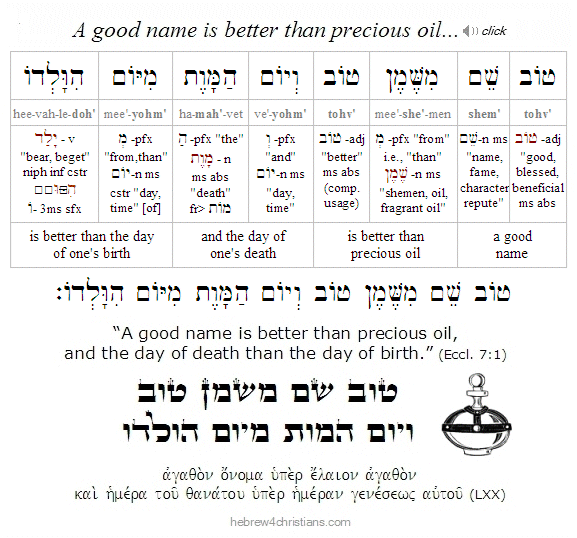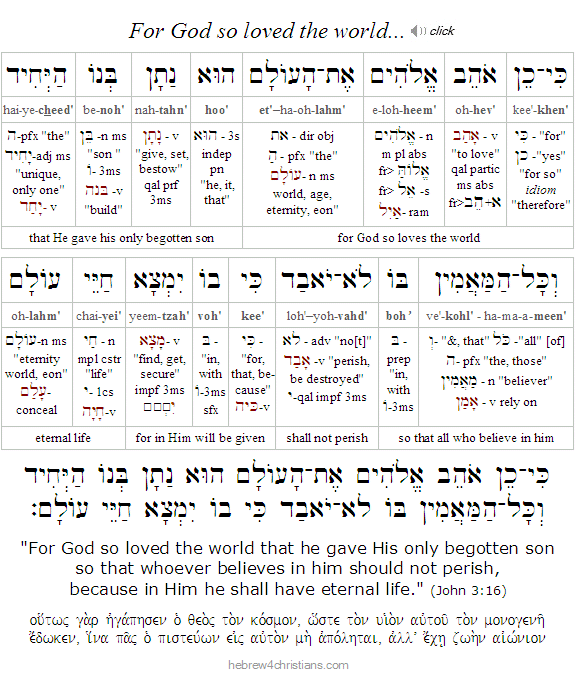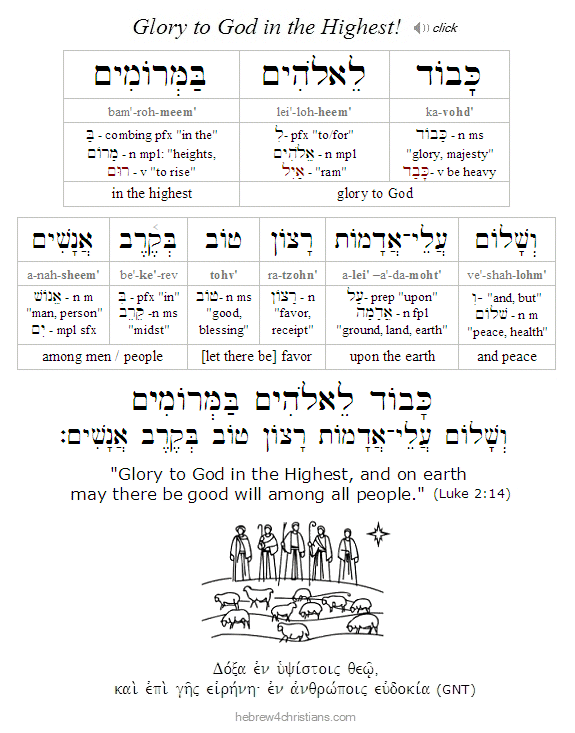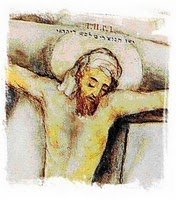|
Though the promised birth of Yeshua may have occurred during the holiday of Sukkot (Tabernacles) with the incarnation occurring during Chanukah (the Festival of Lights), other people of good faith observe the traditional date of December 25th., for reasons that I have explained in some detail elsewhere. Regardless of your particular conviction regarding the date of Yeshua's birth, however, the most important thing to remember is that He was born to die (Heb. 10:5-7). The story of his birth is only significant in relation to His sacrificial death (Mark 8:27-33).
This is of "first importance" (1 Cor.15:3-4). The "manger" scene leads directly to the Cross at Moriah. Indeed, in Jewish tradition the day of one's death is more important than the day of one's birth, since death summarizes the meaning and significance of a person's life in this world. Birth represents potential, whereas death represents inheritance... Therefore the Jewish custom is to commemorate the anniversary of a person's death (i.e., yahrzeit: ūÖūÉū©ū”ūÖūÖūś) rather than the date of birth (though the date of birth is also important, especially with regard to matters of circumcision, naming, etc.). Neverthless, the custom of honoring the day of death is derived from the Scriptures: "A good name is better than precious oil, and the day of death (is better) than the day of birth" (Eccl. 7:1).
 |
The day of Yeshua's death (on Erev Pesach) represents the message of the Gospel story itself: "God so loved the world that He gave His only begotten Son, that whoever believes in Him should not perish but have eternal life" (John 3:16). This is of "first importance": Yeshua was born to die for our sins, to make us right with God, and was raised from the dead to vindicate the righteousness of God (1 Cor. 15:3-5). "For our sake God made Him to be sin who knew no sin, so that in him we might become the righteousness of God" (2 Cor. 5:21). The birth of the Messiah (or rather His incarnation) was the "first step" toward His sacrifice for our deliverance (Heb. 2:9-18). As Paul said, "I decided to know nothing among you except Yeshua the Messiah - and him crucified" (1 Cor. 2:2).
 |
Yeshua came to earth and emptied himself (╬║╬Ł╬ĮŽēŽā╬╣Žé) of His regal glory and power in order to be our High Priest of the New Covenant. The life he lived in complete surrender to the Father was meant to demonstrate that He alone is the efficacious Healer and High Priest (Mediator) of us all: "But [He] made himself nothing (╬Ą╬║╬Ą╬ĮŽēŽā╬Ą╬Į), taking the form of a slave, being born in the likeness of men; and being found in human form, he brought himself low by becoming obedient to the point of death, even death on a cross" (Phil 2:7-8). "There is therefore now no condemnation for those who are in Yeshua the Messiah. For the law of the Spirit of life has set you free in Yeshua the Messiah from the law of sin and death. For God has done what the law, weakened by the flesh, could not do. By sending his own Son in the likeness of sinful flesh and for sin, he condemned sin in the flesh, in order that the righteous requirement of the law might be fulfilled in us, who walk not according to the flesh but according to the Spirit" (Rom. 8:1-4).
Though Christmas is customarily the time that many people observe the birth of the Messiah and Savior, it is surely appropriate to celebrate Yeshua's glory as our risen King and Lord every day of our lives.... Therefore I sincerely wish each and every one of you a wonderful Christmas Season. May we all take time to reflect upon the profound gift of the One who was so great that He emptied Himself (╬║╬Ł╬ĮŽēŽā╬╣Žé) of all His regal glory and power to be clothed in human flesh in order to die as our sin offering before the Father.
 |
By putting our trust in Yeshua, we partake in His chayei olam - eternal life - sharing in His invincible love. He is faithful and true, our Prince of Peace and Beloved Savior. Yehi Shem Adonai mevorakh: ūÖų░ūöų┤ūÖ ū®ūüųĄūØ ūÖų░ūöūĢųĖūö ū×ų░ūæū©ųĖūÜų░ - "Blessed be the Name of the Lord."
Note: For a brief Christmas meditation on Isaiah 9:6 ("Unto us a child is born"), see "Promised Child and Son."
Addendum:
Finally let me add that it is one thing to speculate on the anniversary of the birth date of Messiah, and quite another to submit to His rule in your heart at this present hour... We must be careful. "The natural person does not accept the things of the Spirit of God, for they are foolishness to him, nor is he able to know them because they are spiritually discerned" (1 Cor. 2:14). Note that the "natural person" mentioned here is not carnal or bodily-focused (Žā╬▒Žü╬║╬╣╬║ŽīŽé), but is soul-focused (ŽłŽģŽć╬╣╬║ßĮĖŽé), emphasizing the life of the intellect and rationality. The "soulish" person may find the idea of God or matters of religion "interesting," but not as a matter of life and death. The Spirit of God must first awaken a person to reveal their need for a healing so radical that everything will be transformed, and a new "spiritual person" (ŽĆ╬Į╬ĄŽģ╬╝╬▒Žä╬╣╬║ŽīŽé) will be quickened to receive the truth of God. The Scripture says we are to ask in order to receive, but we do not know enough to truly ask until we accept the reality about our condition. When we ask according to God's will, however, God sets in motion the miracle and the answer to our heart's cry. Regarding these matters, I quote Augustine of Hippo:
In necessariis unitas (in essentials unity),
In dubiis libertas (in doubtful things liberty),
In omnibus autem caritas (but in all things love).
|




